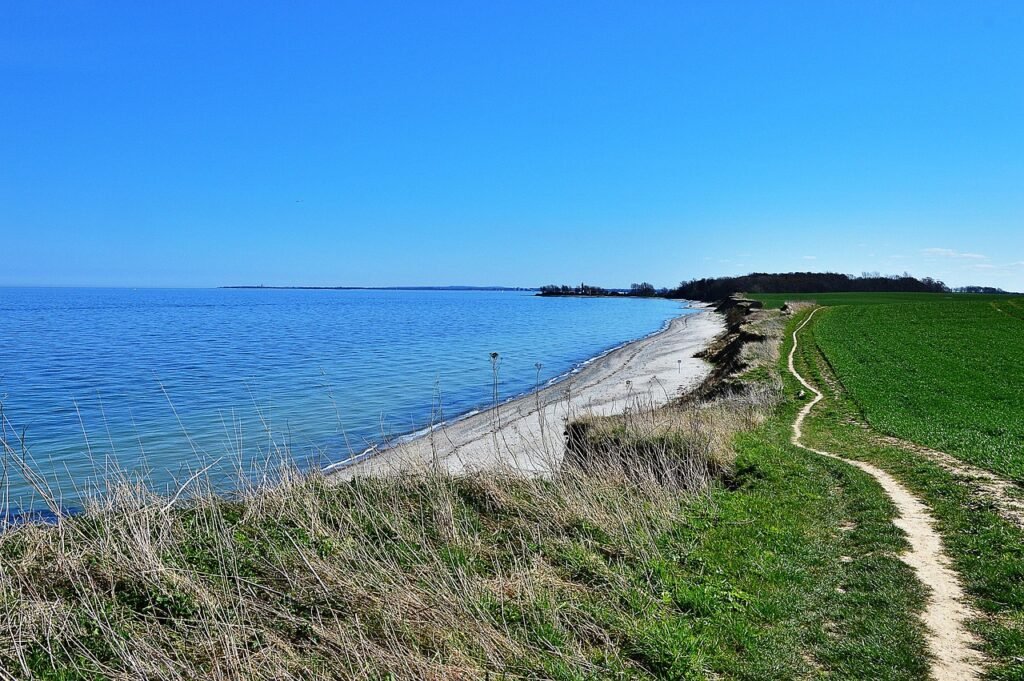Sun, sand, and sea – the trifecta of relaxation. Beaches, with their diverse landscapes and captivating allure, hold a special place in our hearts. Whether you’re seeking adventure, tranquility, or simply a break from the everyday hustle, the perfect beach awaits. This guide explores the various facets of beaches, offering insights into their formation, diverse types, activities they offer, and how to choose the best one for your next getaway.
The Allure and Formation of Beaches
What Makes a Beach?
A beach is more than just sand and water; it’s a dynamic environment shaped by natural forces. Beaches are formed by the accumulation of sediment – sand, pebbles, shells, and even rocks – along a coastline. This sediment is primarily transported by waves and currents. The constant motion of the water breaks down larger materials into smaller particles, which are then deposited along the shore.
The Forces Shaping Our Coastlines
Several factors contribute to the formation and evolution of beaches:
- Wave Action: Waves are the primary force responsible for transporting and depositing sediment.
- Tides: Tides influence the extent of the beach, exposing and covering different areas.
- Currents: Coastal currents can transport sediment over long distances, shaping the coastline.
- Wind: Wind plays a role in transporting sand inland, creating dunes and influencing the beach’s profile.
- Geological Factors: The underlying geology of the coastline influences the type of sediment found on the beach. For example, volcanic islands often have black sand beaches.
Economic and Environmental Importance of Beaches
Beaches provide numerous economic and environmental benefits:
- Tourism: Beaches are a major tourist attraction, generating revenue for local economies. Coastal tourism contributes billions of dollars annually to the global economy.
- Coastal Protection: Beaches act as natural barriers, protecting coastlines from erosion and storm surges.
- Habitat: Beaches provide habitats for a variety of plants and animals, including shorebirds, sea turtles, and marine invertebrates.
- Recreation: Beaches offer opportunities for swimming, sunbathing, surfing, and other recreational activities, promoting physical and mental well-being.
Types of Beaches Around the World
Sandy Beaches: The Classic Choice
Sandy beaches are the most common type, characterized by fine grains of sand composed of various minerals, such as quartz and feldspar. They are ideal for sunbathing, swimming, and building sandcastles.
- Example: Whitehaven Beach, Australia, is famous for its pristine white silica sand.
Rocky Beaches: Rugged Beauty
Rocky beaches are characterized by large rocks, pebbles, and boulders. They are often found in areas with strong wave action and erosion. While not ideal for sunbathing, they offer stunning scenery and opportunities for exploring tide pools.
- Example: Cannon Beach, Oregon, is known for its iconic Haystack Rock and rugged coastline.
Shell Beaches: Nature’s Mosaic
Shell beaches are composed primarily of broken shells and shell fragments. They are often found in areas with abundant marine life. These beaches are unique and beautiful, but can be less comfortable for walking barefoot.
- Example: Shell Beach, Shark Bay, Australia, is made up entirely of tiny cockle shells.
Volcanic Beaches: Black Sand Wonders
Volcanic beaches are formed from volcanic rock and lava flows. They are characterized by black sand, which absorbs heat and can make them very hot to walk on during the day. These beaches offer a dramatic and unique landscape.
- Example: Punalu’u Black Sand Beach, Hawaii, is a famous volcanic beach known for its sea turtles.
Glass Beaches: The Unexpected Treasure
Glass beaches are formed from years of discarded glass that has been tumbled and smoothed by the ocean. While they are a testament to pollution, they also offer a unique and colorful landscape.
- Example: Fort Bragg, California, has a renowned Glass Beach.
Activities to Enjoy at the Beach
Relaxing and Rejuvenating
Beaches are perfect for relaxation and rejuvenation. Here are some ways to unwind:
- Sunbathing: Soak up the sun’s rays and work on your tan (remember to use sunscreen!).
- Reading: Immerse yourself in a good book while listening to the sound of the waves.
- Meditation: Find a quiet spot and practice mindfulness meditation.
- Yoga: Stretch and strengthen your body with a beach yoga session.
Water Sports and Adventures
For the adventurous, beaches offer a wide range of water sports:
- Swimming: Take a refreshing dip in the ocean.
- Surfing: Ride the waves and experience the thrill of surfing.
- Snorkeling and Diving: Explore the underwater world and discover marine life.
- Kayaking and Paddleboarding: Paddle along the coastline and enjoy the scenery.
- Windsurfing and Kitesurfing: Harness the power of the wind and glide across the water.
Beach Games and Activities
Beaches are also great for group activities and games:
- Beach Volleyball: Organize a friendly game of beach volleyball.
- Frisbee: Toss a frisbee with friends or family.
- Sandcastle Building: Get creative and build elaborate sandcastles.
- Beachcombing: Search for shells, sea glass, and other treasures.
- Picnics and Bonfires: Enjoy a picnic lunch or a bonfire under the stars.
Choosing the Perfect Beach for Your Getaway
Defining Your Priorities
Before choosing a beach, consider your priorities:
- Purpose of Trip: Are you looking for relaxation, adventure, or family fun?
- Travel Companions: Are you traveling solo, with a partner, or with children?
- Budget: How much are you willing to spend on transportation, accommodation, and activities?
- Time of Year: What is the weather like at your chosen destination during your travel dates?
Factors to Consider
Here are some specific factors to consider when choosing a beach:
- Water Quality: Check water quality reports to ensure the beach is safe for swimming.
- Safety: Look for beaches with lifeguards and clear warning signs.
- Amenities: Consider the availability of restrooms, showers, and food vendors.
- Crowds: If you prefer a secluded beach, avoid popular tourist destinations.
- Accessibility: Check how easy it is to access the beach by car, public transportation, or boat.
Examples of Ideal Beaches for Different Preferences
- For Families: Clearwater Beach, Florida, is known for its calm waters, playgrounds, and family-friendly activities.
- For Surfers: Nazare, Portugal, is famous for its massive waves and world-class surfing conditions.
- For Snorkelers and Divers: The Great Barrier Reef, Australia, offers unparalleled opportunities for exploring coral reefs and marine life.
- For Relaxation: Anse Source d’Argent, Seychelles, is a secluded beach with stunning scenery and crystal-clear water.
Conclusion
Beaches offer something for everyone, whether you’re seeking adventure, relaxation, or a connection with nature. By understanding the different types of beaches, activities they offer, and factors to consider when choosing a destination, you can plan the perfect beach getaway. So, pack your bags, grab your sunscreen, and get ready to experience the magic of the shore!

